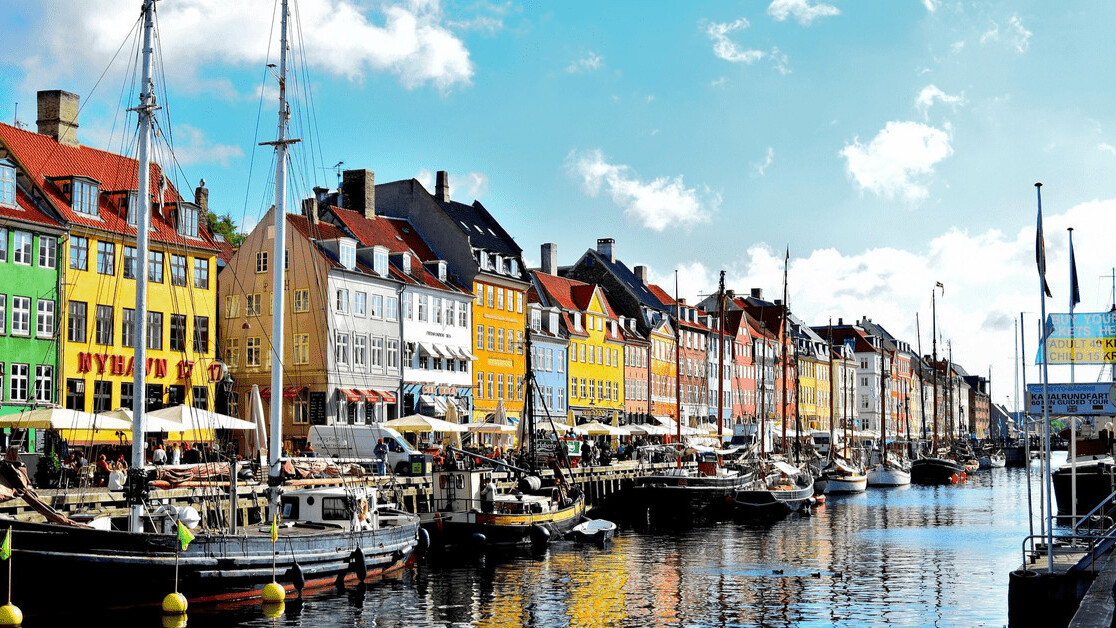
This September upwards of 7000 startup enthusiasts, founders, investors, and representatives of the world’s biggest tech companies flocked to Copenhagen for TechBBQ, the crown jewel in the Danish startup event calendar.
The event is now heralded as the biggest startup and innovation summit in the Nordic region but began with humble beginnings back in 2012. While tech events tend to flower from the ecosystems around them, in Copenhagen the opposite seems to be true. Grassroots nonprofit organizations like TechBBQ and Copenhagen For The Win (CPHFTW) played a key role in laying the seeds for the strong ecosystem which has flourished, to make the Danish capital the ‘unicorn factory’ it is today.
But while CPH might be great at launching billion dollar companies, it has traditionally struggled to keep a hold of them. Zendesk, Unity, Sitecore, Tradeshift, and Trustpilot have all jumped ship, and while they are are estimated to have created more than 14,000 jobs, only 700 of those jobs are in Denmark today.
But today, a number of exciting new initiatives have their sights set on providing the capital and talent needed to stop Danish unicorns from flying the coop. I recently had the opportunity to connect with a number of local players and ecosystem builders in the city to discuss the advantages, and limitations of launching a startup in Copenhagen:
The roots of the ecosystem
Despite global organizations like StartupBootcamp being present in the city since 2010, Camilla Ley Valentin, CCO, and founder of Queue-it, told me that looking back to the start of this decade, there was not much of a cohesive startup community to speak of. VentureCup, a competition designed to showcase innovation from Danish university students, was launched as early as 2000, but it wasn’t until much later when a real startup cohesive community began to emerge.
In 2012 a group of local entrepreneurs including Klaus Nyengaard the former CEO of JustEat, Pia Elmegård co-founder of Nordic.AI and Growth Tribe Academy, Martin Bjerregaard, founder of Rainmaking and serial entrepreneurs Daniel Laursen and Esben Gadsbøll, started to organize ‘BYOB’ BBQs in Kongens Have park. The first event was attended by about 150 people, and was organized to bring entrepreneurs together to discuss achievements and challenges in their own projects.
Around about the same time, Thomas Madsen-Mygdal, Martin von Haller, Michael Reibel Boesen, and others co-founded Copenhagen For The Win (CPHFTW). Both TechBBQ and CPHFTW were self-funded and began to scale their communities, and also to create newsletters, social media groups, and meetups to allow members to share news, and cooperate on projects.
Both organizations were also integral in bringing together local Angel investors, and inviting international investors from more developed ecosystems to get involved in events, and meetups, and engage with local founders. Around about this time, a number of local startups starting to raise big rounds started to bolster the confidence and enthusiasm of the emerging community.

Support organizations
Today there is a surprising wealth of different coworking spaces, and startup hubs to choose from for a city of only 600K people.
Located just across the canal from the Christiansborg palace is Matrikel 1, a beautifully designed coworking space founded by serial entrepreneur and ecosystem builder Tine Thygesen. Amongst other projects, Thygesen is the founder of The Creators Community, a network of coworking spaces which also includes Founders House and Startup Village within Copenhagen. Other notable coworking spaces include Republikken, duop which offers access to workshops for product development, and co-work slash art gallery Nomad Workspace.
For those looking for more support, Talent Garden Rainmaking offers workspace, events, and mentorship to 300+ entrepreneurs, and also runs an ‘innovation school’ program for members. For startups working in the fintech space, CPH Fintech Hub is a no-brainer, offering affordable office space, as well as various programs such as a two month Nordic Fast track program to help startups launch in the region, a global scale-up program and access to a global network of mentors. The Copenhagen Fintech Accelerator founded by Copenhagen FinTech, Accelerace, and The Danish Industry Foundation is backed by two of Denmark’s leading financial institutions Nykredit and Danske Bank.
There is no shortage of accelerator programs in the city either. Accelerace offers a number of niche programs focusing on IoT, cleantech, fintech, and food tech amongst others, tying in well with the key startup trends in the region. International accelerator Rockstart runs an AgriFood program supporting agritech and foodtech startups with acceleration and also co-investing in participating startups up to Series B.
For startups working in sustainable energy and cleantech, there are the EIT Climate-KIC cleantech accelerator and the Greenhouse pre-incubation program. For pre-seed projects, Katapult and Danske Bank have partnered behind the +impact Accelerator!. For those working in health tech, Health Tech Nordic brings together 200+ startups with key local institutions and mentors.
Events and startup organizations
Danish Startup Group runs regular events, and support for first-time entrepreneurs, and students interested in entrepreneurship and innovation. A browse of Meetup or TechStars Startup Digest reveals an abundance of developer meetups and niche groups like ProductTank which holds regular meetups for product managers and Women in tech DK. For those working in AI, check out AI Copenhagen and Nordic AI.
Louise Ferslev, CEO of Mymonii and co-founder of Women in Tech told me that while the group started off only targeting female founders, it has since broadened its net to founders of any gender from underrepresented demographics. September is a busy month in Copenhagen. Aside from TechBBQ, Tech Festival is also held in Copenhagen’s iconic Meatpacking district bringing thousands of innovators together around the theme of human-centric to technology.
In November GoTo Copenhagen delves into the deeper themes in developer culture, such as quantum computing and AI ethics. In April, NDC Copenhagen will bring thousands of developers together under the same roof to co-create and discuss key industry themes, and in May Denmark Demo day offers Nordic founders searching for pre-seed and seed funding the chance to pitch an elite group of international and local investors.
On a similar thread, Investor Series brings local 40 selected local startups together with 40 investors four times a year, but with an interesting twist. In this event, the investors reverse-pitch the value they can offer. In June, the Nordic private equity summit organized by the Danish Venture Capital and Private Equity Association will bring hundreds of engaged investors to the city.
Talent
2018 saw record-breaking employment levels. Denmark’s economy is the fifth-most productive in the world, despite ranking for the second-fewest actual hours worked globally, leading some Danish companies to experiment with a 30-hour work week.
For a small city, Copenhagen is home to a lot of high quality universities, including the University of Copenhagen, the Technical University of Denmark, Copenhagen Business School, and the IT University of Copenhagen. Le Wagon , a 9-week Ruby on Rails focused coding bootcamp is also available.
Some local universities are already acting as a funnel directly into the local tech scene, such as the Technical University of Denmark, which owns PreSeed Ventures, Denmark’s largest early stage investor and innovation incubator.
But with upwards of 80 active high growth technology companies working out of a small ecosystem, competition for talent is extremely high. Andreas Cleve, CEO of Corti.ai told me that while his company had managed to hire senior AI developers, finding VP level talent, with experience scaling businesses, was much trickier.
Current VISA restrictions make it very hard for employers looking outside of the local talent pool. Tony Beltramelli, CEO of Uizard told me that even a three months summer internship requires a VISA application process that can take up to two months.
To get the people they need, Mik Stroyberg, CEO of Good.Monday says local companies need to go near-shore, offshore, and look outside from the get-go. To keep a hold of talent, companies need to behave like global companies, and roll out international offices quickly, to emerge employees in ‘high pace’ startup environments, but also to get access to foreign talent.

Government support
Denmark has consistently been voted one of the best countries in the world for entrepreneurs by the World Bank, and the lack of red tape when setting up a business has a big part to play in this. It takes less than 24 hours to set up a company in Denmark.
There are government backed programs in place to help startups. InnoFounder, an incubator owned and financed by Innovation Fund Denmark, offers 12 months of funding, as well as an experienced business mentor, free workspace, and access to workshops. The Danish Business Authority also offers resources, and guidance to allow founders to ‘soft launch’ their businesses locally.
Initiatives such as Startup Denmark aim to attract foreign founders to the region with residence and work permits which are valid for two years, and access to a toolbox of resources for early stage startups including educational programs and access to mentors.
Vækstfonden is the Danish state’s investment fund, and works closely with leading financial services and local and international investors, to fund local projects, and help local enterprises along their journey from seed round to IPO.
However, Erdem Ovacik, CEO and founder of sustainability focused bike share startup Donkey Republic, told me that while generally local authorities in Copenhagen make it as easy as possible for businesses to launch, there is room for improvement when it comes to regulation.
Ovacik argues the city will most likely be the first European capital to roll out smart mobility regulations, but notes that the process has been slowed down by the Danish government, and particular politicians with vested interests in holding back the growth of this industry.
Access to funding
Since the startup community unified post 2013 and more local success stories have emerged, there are now a number of key Angels groups like DanBan – Danish Business Angels, Switzr Midt/Nordjylland, BAN InVest Østjylland, and BA-Syddanmark which are very active, and whose members regularly attend local events, and meetups.
And for those startups which want to look for seed investment remotely, there are a number of different homegrown funding options like Valuer.ai, investment platform Funderbeam, or crowdfunding platforms like Lendino.
There is no shortage of VC firms to choose from in the city. Seed Capital is the largest, and probably most active early-stage fund, NordicMarkers have a large number of unicorns on their portfolio and Nordic Eye Venture Capital was recently crowned national winner at the Nordic Startup Awards.
There are also a number of more niche funds, such as Blazar Capital (e-commerce) Heartcore capital (life sciences), Northcap (B2B and B2B2C), North-East Venture (fintech, e-commerce, sustainability, AI and VR/AR, and Sortedam Ventures (web and mobile).
A recent report from the Vækstfonden ranks Denmark at around the fifth best in Europe for startups seeking seed- and early-stage investments. However, raising growth capital locally can be more challenging. A recent Forbes article highlights that more than half of investments in Danish startups are now coming from international investors, with relatively little coming from Nordic investors.
But one local organization wants to change this. In 2017, 50 influential local founders from across the Nordic region including founders of some of the region’s biggest successes such as Skype, ZenDesk, Kahoot, Unity, Sitecore, and Vivino, came together as limited partners under a new €100M early-stage VC fund called ByFounders.
Ida Åsle from ByFounders says the fund was born out of an urge to provide expert mentorship, and scaling capital locally so that homegrown startups in the region did not have to follow suit with the previous seven Danish unicorns in relocating abroad. Described as a fund ‘for founders, by founders’, members can also take advantage of the business networks, connections, and expertise of ‘the collective’.

Conclusion
The bridge to Nordic region from Europe, Copenhagen, has all the key components for a strong, stable ecosystem. However, if it is going to keep its unicorns closer to home, there needs to be more scaling capital and senior talent available to facilitate growth from startups into international enterprises.
But with a new leftist government formed this June, local entrepreneurs are feeling positive. The last government was was mostly supportive of boosting innovation and entrepreneurship, and the new administration has already proposed policies which would make it easier for Danish firms to attract and recruit more skilled labor. It has been suggested that immigration policy changes could lead to 10,000 extra people being employed in 2025.
While the Danish — and Scandinavians in general — are not known to shout about their successes, they are quick to focus on the areas to be improved. But with events like TechBBQ and organizations like ByFounders leading the way, international investors, and talent are sure to continue flocking to the region over time.
Get the TNW newsletter
Get the most important tech news in your inbox each week.




